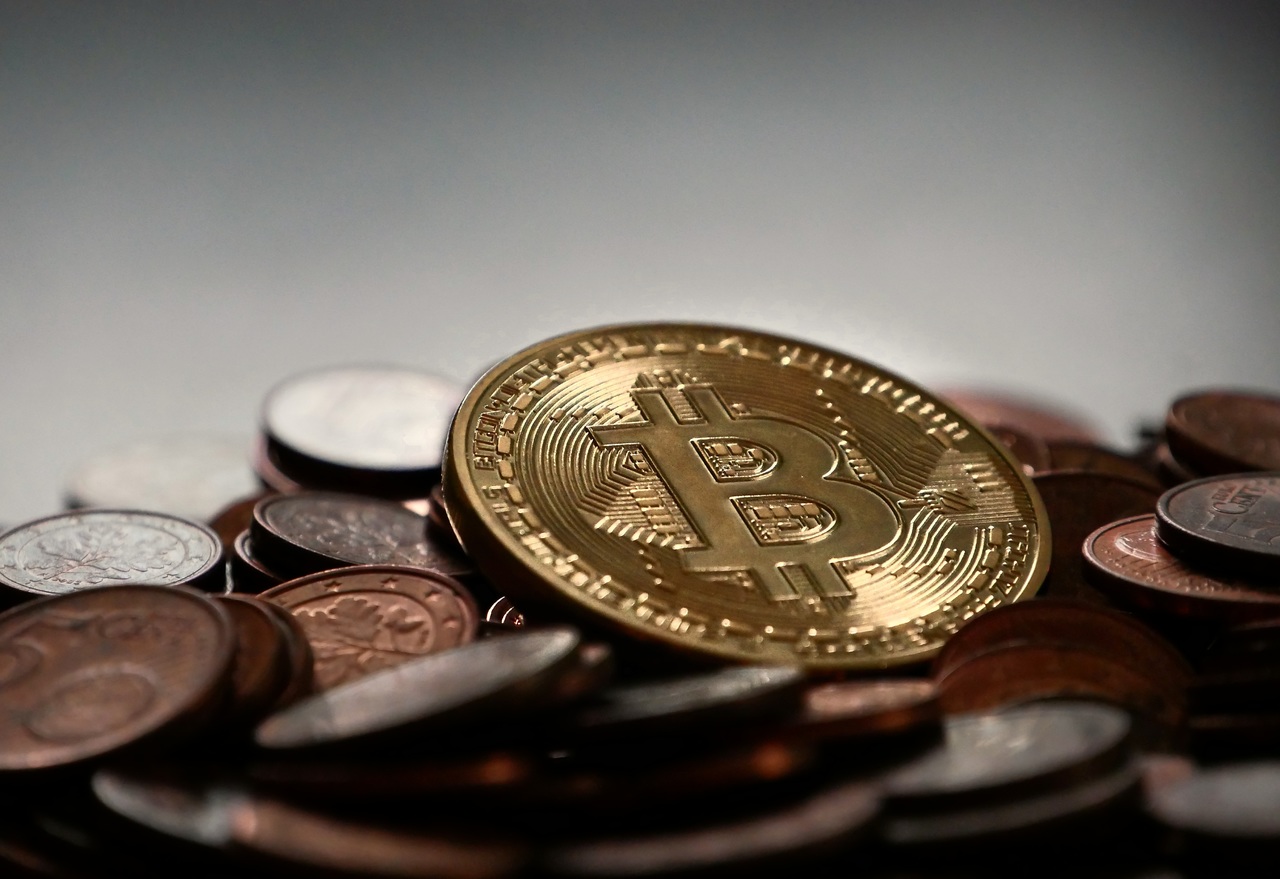Do you crypto?
It seems everyone knows a little something about crypto these days. The crypto universe – from tokens to trading to capital formation – has exploded in a way that can best be described as similar to the Big Bang. In the course of just a year, this once under-the-radar market has gone from the virtual shadows to the mainstream – from Wall Street to Main Street. Once only known to a handful of Millennial entrepreneurs and traders, all things crypto now dominate the public discourse.
Crypto has gone viral. But despite all the crypto-mania and hoopla, many lingering questions surround the mysterious market. Is crypto an asset class? Who is responsible for regulating it? Will it replace the equity markets as a means of capital raising? And of course, just who is buying and/or selling it?
Let’s take a deeper look.
 Michael Chin, Thomson Reuters
Michael Chin, Thomson Reuters
Perhaps the answer to some of these questions begins with Michael Chin, Co-Head of Trading at Thomson Reuters, who told Traders Magazine that he considers cryptocurrency as an asset class – much the same as equities, futures, options, derivatives, fixed income and foreign exchange.
“While there is much debate about whether crypto is considered an asset class given its sheer volatility, liquidity challenges and unregulated nature, we believe it is an emerging new asset class that is getting the serious attention of institutional investors who are looking at it as a diversifier for their investment portfolios,” Chin said. “Crypto as an asset class is in the eye of the beholder and whatever your view is, we see our role as providing greater transparency through information and connectivity.”
Step Right Up, Don’t Be Shy
So, who is actually buying and selling crypto?
Chin said that when he speaks to his clients, interest lies more with retail investors than institutional investors. He shared with Traders Magazine the results of a recent crypto survey sent to the clients - asking them about their views on crypto. In the survey, 70% of respondents said they were not thinking about trading cryptocurrencies at this time. When the firm asked what Thomson Reuters can provide to assist in their trading needs, nearly 85% of respondents who said they were thinking of trading cryptocurrencies said that both data and news were the most important.
“At this point, it seems the buy side is taking more of a wait-and-see approach,” he said. “You're finding that it's the smaller hedge funds, the ones that are taking more of a speculative view, that are involved.”
That is not to say institutional investors do not have a view on crypto - many do. The survey also asked if the buy side were to trade crypto, almost 70% said it would be in the next three to six months and over 80% percent of those trades would be in either Bitcoin or Ethereum. Thomson Reuters connects to a number of FCMs and brokers who are offering crypto futures execution.
It’s a Bird. It’s a Plane. It’s What?
 Sam Chadwick, Thomson Reuters
Sam Chadwick, Thomson Reuters
And what are retail investors and the handful of institutional investors inquiring about when it comes to crypto?
Sam Chadwick, Director of Innovation at Thomson Reuters explained that despite the myriad tokens – Bitcoin, Ether, Ripple, Litecoin and the hundred or so others – he examines them all as a whole group but does delineate between each of the tokens in distinct ways. Crypto comes in many forms.
“We typically have three segments of tokens,” Chadwick explained. “The first is where the token is backed by nothing, i.e. it behaves mostly like a currency, where the value of it is determined predominantly by confidence as opposed to anything else. The second group is where there is an asset behind it, and that might be something like a cubic meter of liquified natural gas, or it might be a barrel of oil, or a pound of gold, an equity, a traditional share, a derivative or even real estate.”
“And then the last group we see are where tokens represent rights,” Chadwick continued. “It might be a right to vote, or a right to use a product or service, almost like an air mile, it might be the right to open a door for a service like AirBnB. We have these three classifications that we view crypto as but haven't tried to represent the cryptocurrencies within our products and services based on these classifications yet, because they’re still evolving and it is common for them to change classification during their life and even fall into multiple classifications are the same time.”
To Regulate or Not to Regulate
Several dozen exchanges – both big and small – offer some sort of crypto trading and pricing information. According to Chadwick and others, most of the trading is confined to Bitcoin, Bitcoin Cash, Ether, Ripple and Litecoin on about a dozen exchanges although the unknown quantity of OTC trading and the frequent instances of exchanges publishing fictitious trading activity to make investors believe there is liquidity make it hard to get accurate data.
 David Weisberger, CoinRoutes
David Weisberger, CoinRoutes
And as trading continues, regulators across the globe are watching, examining and looking at how they can keep tabs on a sector that is ripe for not just innovation but nefarious and predatory behavior.
“In the crypto markets, there are no regulators, yet,” began David Weisberger, Co-Founder of CoinRoutes. “What should we expect? I don't expect much out of Washington these days, but there are a lot of hard-working people at the SEC who really want to get this right, and they've been put into an almost impossible situation. On the one hand, there is a lack, in the crypto markets, of basic principles that we know helps ensure markets to work better. Things like best execution, surveillance of manipulation, disclosure and management of conflicts of interest, and there's other big ones like maintaining fair and orderly markets.”
Orderly markets are of great concern to Weisberger and others as no one wants to see a “flash crash” type of event happen in the fledgling crypto universe. An event like a “flash crash” could prolong the absence of institutional traders, which can stifle the industry.
“To that end, protocol is being established in exchanges on a consistent basis to stop flash events,” Weisberger added. “Those are things that matter. Should the regulators be enforcing that? Well, they'd like to, but the question is how prescriptive can they be?
There are also conflicts of interest in the crypto world, just like in many other asset classes, Weisberger added. He reported there are firms out there that run retail brokers, as well exchanges, or even operate fund managers and fund processes. All of which can run afoul of best execution obligations.
“Well, if you're a retail firm, you generally have an obligation to try to seek the best price for your customer. Well, what if your exchange isn't the best price,” he asked. “Do you disclose that you don't go to other exchanges, that you only go to your own exchange? This disclosure to people who understand that, that's one thing. But that's not even disclosure, so managing conflicts of interest is kind of a big deal. In the equity world, that would never be allowed.”
The Future’s So Bright...
 Nigel Greene, deVere Group
Nigel Greene, deVere Group
Despite the lingering questions surrounding cryptos and relative opaqueness of the market, there continues to be widespread innovation, emerging technologies and players getting involved in the marketplace.
Nigel Green, the founder and CEO of deVere Group, told Traders Magazine recently that he has high hopes for the crypto industry, which he felt would be led by Ripple and not Bitcoin.
“After the cryptocurrency market somewhat overheated at the end of 2017, it is once again, now looking already significantly more bullish than it did in Quarter 1,” Green said. “This latest upward crypto market trajectory can be attributed to the fact that institutional and retail investors are increasingly appreciating the fundamentals, such as the need and demand for digital currencies in a digitalized, tech-driven age.”














